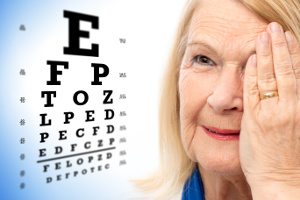afterLoad (456.25KB) (3.7ms)
afterInitialise (1.27MB) (23.96ms)
afterRoute (870.3KB) (9.98ms)
beforeRenderComponent com_tags (21.13KB) (655μs)
afterRenderComponent com_tags (1.36MB) (87.51ms)
afterDispatch (27.05KB) (2.78ms)
beforeRenderRawModule mod_articles_category (READ MORE...) (388.12KB) (9.76ms)
Before Access::preloadComponents (all components) (56.7KB) (1.71ms)
After Access::preloadComponents (all components) (103.05KB) (1.95ms)
Before Access::getAssetRules (id:8 name:com_content) (840B) (18μs)
After Access::getAssetRules (id:8 name:com_content) (7.05KB) (45μs)
afterRenderRawModule mod_articles_category (READ MORE...) (5.7KB) (121ms)
beforeRenderRawModule mod_tags_popular (Search) (4.81KB) (33μs)
afterRenderRawModule mod_tags_popular (Search) (2.79KB) (74.14ms)
beforeRenderRawModule mod_custom (Remember to download Heart Healthy Seniors) (816B) (26μs)
afterRenderRawModule mod_custom (Remember to download Heart Healthy Seniors) (4.86KB) (224μs)
beforeRenderRawModule mod_custom (Get additionel and more detailed knowledge ) (752B) (14μs)
afterRenderRawModule mod_custom (Get additionel and more detailed knowledge ) (1.67KB) (28μs)
beforeRenderRawModule mod_custom (BOOST YOUR IMMUNE DEFENSE) (608B) (10μs)
afterRenderRawModule mod_custom (BOOST YOUR IMMUNE DEFENSE) (928B) (23μs)
beforeRenderRawModule mod_custom (Are you taking supplements) (736B) (9μs)
afterRenderRawModule mod_custom (Are you taking supplements) (1.03KB) (19μs)
beforeRenderRawModule mod_custom (Antiaging) (720B) (8μs)
afterRenderRawModule mod_custom (Antiaging) (1.02KB) (18μs)
beforeRenderRawModule mod_custom (Exercise) (720B) (8μs)
afterRenderRawModule mod_custom (Exercise) (1.02KB) (18μs)
beforeRenderRawModule mod_custom (Check this before you buy a Q10 product) (752B) (9μs)
afterRenderRawModule mod_custom (Check this before you buy a Q10 product) (944B) (19μs)
beforeRenderRawModule mod_custom (Chronic fatigue tied Alan to his bed but Q10 capsules saved him:) (245.53KB) (7.4ms)
afterRenderRawModule mod_custom (Chronic fatigue tied Alan to his bed but Q10 capsules saved him:) (960B) (57μs)
beforeRenderModule mod_custom (Chronic fatigue tied Alan to his bed but Q10 capsules saved him:) (768B) (5μs)
afterRenderModule mod_custom (Chronic fatigue tied Alan to his bed but Q10 capsules saved him:) (1.3KB) (61μs)
beforeRenderRawModule mod_custom (Cholesterol-lowering without side effects:) (368B) (12μs)
afterRenderRawModule mod_custom (Cholesterol-lowering without side effects:) (2.19KB) (25μs)
beforeRenderModule mod_custom (Cholesterol-lowering without side effects:) (752B) (2μs)
afterRenderModule mod_custom (Cholesterol-lowering without side effects:) (1.28KB) (30μs)
beforeRenderModule mod_articles_category (READ MORE...) (21.32KB) (446μs)
afterRenderModule mod_articles_category (READ MORE...) (1.25KB) (38μs)
beforeRenderModule mod_tags_popular (Search) (5.17KB) (13μs)
afterRenderModule mod_tags_popular (Search) (1.27KB) (25μs)
beforeRenderModule mod_custom (Remember to download Heart Healthy Seniors) (1.17KB) (11μs)
afterRenderModule mod_custom (Remember to download Heart Healthy Seniors) (1.3KB) (22μs)
beforeRenderModule mod_custom (Get additionel and more detailed knowledge ) (368B) (9μs)
afterRenderModule mod_custom (Get additionel and more detailed knowledge ) (1.3KB) (21μs)
beforeRenderModule mod_custom (BOOST YOUR IMMUNE DEFENSE) (224B) (9μs)
afterRenderModule mod_custom (BOOST YOUR IMMUNE DEFENSE) (1.28KB) (21μs)
beforeRenderModule mod_custom (Are you taking supplements) (352B) (9μs)
afterRenderModule mod_custom (Are you taking supplements) (1.28KB) (21μs)
beforeRenderModule mod_custom (Antiaging) (336B) (9μs)
afterRenderModule mod_custom (Antiaging) (1.27KB) (21μs)
beforeRenderModule mod_custom (Exercise) (336B) (8μs)
afterRenderModule mod_custom (Exercise) (1.25KB) (21μs)
beforeRenderModule mod_custom (Check this before you buy a Q10 product) (352B) (1.12ms)
afterRenderModule mod_custom (Check this before you buy a Q10 product) (1.28KB) (59μs)
beforeRenderRawModule mod_menu (Main menu-US) (20.94KB) (617μs)
afterRenderRawModule mod_menu (Main menu-US) (152.66KB) (6.79ms)
beforeRenderModule mod_menu (Main menu-US) (720B) (5μs)
afterRenderModule mod_menu (Main menu-US) (4.36KB) (63μs)
beforeRenderRawModule mod_languages (Sprogskift) (3.44KB) (20μs)
afterRenderRawModule mod_languages (Sprogskift) (26.82KB) (4.2ms)
beforeRenderModule mod_languages (Sprogskift) (720B) (6μs)
afterRenderModule mod_languages (Sprogskift) (5.31KB) (21μs)
beforeRenderRawModule mod_finder () (6.34KB) (12μs)
afterRenderRawModule mod_finder () (214.16KB) (5.87ms)
beforeRenderModule mod_finder () (704B) (5μs)
afterRenderModule mod_finder () (5.79KB) (39μs)
beforeRenderRawModule mod_custom () (6.62KB) (158μs)
afterRenderRawModule mod_custom () (22.64KB) (2.76ms)
beforeRenderModule mod_custom () (704B) (6μs)
afterRenderModule mod_custom () (1.23KB) (60μs)
beforeRenderRawModule mod_menu (Main menu-US) (5.07KB) (114μs)
afterRenderRawModule mod_menu (Main menu-US) (5.8KB) (682μs)
beforeRenderModule mod_menu (Main menu-US) (720B) (4μs)
afterRenderModule mod_menu (Main menu-US) (1.25KB) (43μs)
beforeRenderRawModule mod_languages (Sprogskift Mobil) (912B) (1.44ms)
afterRenderRawModule mod_languages (Sprogskift Mobil) (3.89KB) (1.27ms)
beforeRenderModule mod_languages (Sprogskift Mobil) (720B) (5μs)
afterRenderModule mod_languages (Sprogskift Mobil) (1.27KB) (37μs)
beforeRenderRawModule mod_finder () (2.3KB) (12μs)
afterRenderRawModule mod_finder () (6.29KB) (1.11ms)
beforeRenderModule mod_finder () (704B) (5μs)
afterRenderModule mod_finder () (1.23KB) (48μs)
beforeRenderRawModule mod_custom () (8.66KB) (189μs)
afterRenderRawModule mod_custom () (904B) (891μs)
beforeRenderModule mod_custom () (704B) (6μs)
afterRenderModule mod_custom () (2.43KB) (31μs)
beforeRenderRawModule mod_custom () (688B) (1.36ms)
afterRenderRawModule mod_custom () (896B) (159μs)
beforeRenderModule mod_custom () (704B) (3μs)
afterRenderModule mod_custom () (2.71KB) (29μs)
afterRender (237.71KB) (23.95ms)
| 1 x afterRenderRawModule mod_articles_category (READ MORE...) (5.7KB) (30.01%) | 120.94ms |
| 1 x afterRenderComponent com_tags (1.36MB) (21.71%) | 87.51ms |
| 1 x afterRenderRawModule mod_tags_popular (Search) (2.79KB) (18.4%) | 74.14ms |
| 1 x afterInitialise (1.27MB) (5.94%) | 23.96ms |
| 1 x afterRender (237.71KB) (5.94%) | 23.95ms |
| 1 x afterRoute (870.3KB) (2.48%) | 9.98ms |
| 1 x beforeRenderRawModule mod_articles_category (READ MORE...) (388.12KB) (2.42%) | 9.76ms |
| 1 x beforeRenderRawModule mod_custom (Chronic fatigue tied Alan to his bed but Q10 capsules saved him:) (245.53KB) (1.84%) | 7.40ms |
| 1 x afterRenderRawModule mod_menu (Main menu-US) (152.66KB) (1.68%) | 6.79ms |
| 1 x afterRenderRawModule mod_finder () (214.16KB) (1.46%) | 5.87ms |
| 1 x afterRenderRawModule mod_languages (Sprogskift) (26.82KB) (1.04%) | 4.20ms |
| 1 x afterLoad (456.25KB) (0.92%) | 3.70ms |
| 1 x afterDispatch (27.05KB) (0.69%) | 2.78ms |
| 1 x afterRenderRawModule mod_custom () (22.64KB) (0.68%) | 2.76ms |
| 1 x After Access::preloadComponents (all components) (103.05KB) (0.48%) | 1.95ms |
| 1 x Before Access::preloadComponents (all components) (56.7KB) (0.42%) | 1.71ms |
| 1 x beforeRenderRawModule mod_languages (Sprogskift Mobil) (912B) (0.36%) | 1.44ms |
| 1 x beforeRenderRawModule mod_custom () (688B) (0.34%) | 1.36ms |
| 1 x afterRenderRawModule mod_languages (Sprogskift Mobil) (3.89KB) (0.32%) | 1.27ms |
| 1 x beforeRenderModule mod_custom (Check this before you buy a Q10 product) (352B) (0.28%) | 1.12ms |
| 1 x afterRenderRawModule mod_finder () (6.29KB) (0.28%) | 1.11ms |
| 1 x afterRenderRawModule mod_custom () (904B) (0.22%) | 891μs |
| 1 x afterRenderRawModule mod_menu (Main menu-US) (5.8KB) (0.17%) | 682μs |
| 1 x beforeRenderComponent com_tags (21.13KB) (0.16%) | 655μs |
| 1 x beforeRenderRawModule mod_menu (Main menu-US) (20.94KB) (0.15%) | 617μs |
| 1 x beforeRenderModule mod_articles_category (READ MORE...) (21.32KB) (0.11%) | 446μs |
| 1 x afterRenderRawModule mod_custom (Remember to download Heart Healthy Seniors) (4.86KB) (0.06%) | 224μs |
| 1 x beforeRenderRawModule mod_custom () (8.66KB) (0.05%) | 189μs |
| 1 x afterRenderRawModule mod_custom () (896B) (0.04%) | 159μs |
| 1 x beforeRenderRawModule mod_custom () (6.62KB) (0.04%) | 158μs |
| 1 x beforeRenderRawModule mod_menu (Main menu-US) (5.07KB) (0.03%) | 114μs |
| 1 x afterRenderModule mod_menu (Main menu-US) (4.36KB) (0.02%) | 63μs |
| 1 x afterRenderModule mod_custom (Chronic fatigue tied Alan to his bed but Q10 capsules saved him:) (1.3KB) (0.02%) | 61μs |
| 1 x afterRenderModule mod_custom () (1.23KB) (0.01%) | 60μs |
| 1 x afterRenderModule mod_custom (Check this before you buy a Q10 product) (1.28KB) (0.01%) | 59μs |
| 1 x afterRenderRawModule mod_custom (Chronic fatigue tied Alan to his bed but Q10 capsules saved him:) (960B) (0.01%) | 57μs |
| 1 x afterRenderModule mod_finder () (1.23KB) (0.01%) | 48μs |
| 1 x After Access::getAssetRules (id:8 name:com_content) (7.05KB) (0.01%) | 45μs |
| 1 x afterRenderModule mod_menu (Main menu-US) (1.25KB) (0.01%) | 43μs |
| 1 x afterRenderModule mod_finder () (5.79KB) (0.01%) | 39μs |
| 1 x afterRenderModule mod_articles_category (READ MORE...) (1.25KB) (0.01%) | 38μs |
| 1 x afterRenderModule mod_languages (Sprogskift Mobil) (1.27KB) (0.01%) | 37μs |
| 1 x beforeRenderRawModule mod_tags_popular (Search) (4.81KB) (0.01%) | 33μs |
| 1 x afterRenderModule mod_custom () (2.43KB) (0.01%) | 31μs |
| 1 x afterRenderModule mod_custom (Cholesterol-lowering without side effects:) (1.28KB) (0.01%) | 30μs |
| 1 x afterRenderModule mod_custom () (2.71KB) (0.01%) | 29μs |
| 1 x afterRenderRawModule mod_custom (Get additionel and more detailed knowledge ) (1.67KB) (0.01%) | 28μs |
| 1 x beforeRenderRawModule mod_custom (Remember to download Heart Healthy Seniors) (816B) (0.01%) | 26μs |
| 1 x afterRenderRawModule mod_custom (Cholesterol-lowering without side effects:) (2.19KB) (0.01%) | 25μs |
| 1 x afterRenderModule mod_tags_popular (Search) (1.27KB) (0.01%) | 25μs |
| 1 x afterRenderRawModule mod_custom (BOOST YOUR IMMUNE DEFENSE) (928B) (0.01%) | 23μs |
| 1 x afterRenderModule mod_custom (Remember to download Heart Healthy Seniors) (1.3KB) (0.01%) | 22μs |
| 1 x afterRenderModule mod_custom (Get additionel and more detailed knowledge ) (1.3KB) (0.01%) | 21μs |
| 1 x afterRenderModule mod_custom (BOOST YOUR IMMUNE DEFENSE) (1.28KB) (0.01%) | 21μs |
| 1 x afterRenderModule mod_custom (Are you taking supplements) (1.28KB) (0.01%) | 21μs |
| 1 x afterRenderModule mod_custom (Antiaging) (1.27KB) (0.01%) | 21μs |
| 1 x afterRenderModule mod_custom (Exercise) (1.25KB) (0.01%) | 21μs |
| 1 x afterRenderModule mod_languages (Sprogskift) (5.31KB) (0.01%) | 21μs |
| 1 x beforeRenderRawModule mod_languages (Sprogskift) (3.44KB) (0%) | 20μs |
| 1 x afterRenderRawModule mod_custom (Are you taking supplements) (1.03KB) (0%) | 19μs |
| 1 x afterRenderRawModule mod_custom (Check this before you buy a Q10 product) (944B) (0%) | 19μs |
| 1 x Before Access::getAssetRules (id:8 name:com_content) (840B) (0%) | 18μs |
| 1 x afterRenderRawModule mod_custom (Antiaging) (1.02KB) (0%) | 18μs |
| 1 x afterRenderRawModule mod_custom (Exercise) (1.02KB) (0%) | 18μs |
| 3 x beforeRenderModule mod_custom () (704B) (0%) | 15μs |
| 1 x beforeRenderRawModule mod_custom (Get additionel and more detailed knowledge ) (752B) (0%) | 14μs |
| 1 x beforeRenderModule mod_tags_popular (Search) (5.17KB) (0%) | 13μs |
| 1 x beforeRenderRawModule mod_finder () (2.3KB) (0%) | 12μs |
| 1 x beforeRenderRawModule mod_custom (Cholesterol-lowering without side effects:) (368B) (0%) | 12μs |
| 1 x beforeRenderRawModule mod_finder () (6.34KB) (0%) | 12μs |
| 1 x beforeRenderModule mod_custom (Remember to download Heart Healthy Seniors) (1.17KB) (0%) | 11μs |
| 1 x beforeRenderRawModule mod_custom (BOOST YOUR IMMUNE DEFENSE) (608B) (0%) | 10μs |
| 2 x beforeRenderModule mod_finder () (704B) (0%) | 10μs |
| 1 x beforeRenderRawModule mod_custom (Check this before you buy a Q10 product) (752B) (0%) | 9μs |
| 1 x beforeRenderModule mod_custom (Get additionel and more detailed knowledge ) (368B) (0%) | 9μs |
| 1 x beforeRenderModule mod_custom (BOOST YOUR IMMUNE DEFENSE) (224B) (0%) | 9μs |
| 1 x beforeRenderModule mod_custom (Are you taking supplements) (352B) (0%) | 9μs |
| 1 x beforeRenderModule mod_custom (Antiaging) (336B) (0%) | 9μs |
| 2 x beforeRenderModule mod_menu (Main menu-US) (720B) (0%) | 9μs |
| 1 x beforeRenderRawModule mod_custom (Are you taking supplements) (736B) (0%) | 9μs |
| 1 x beforeRenderRawModule mod_custom (Antiaging) (720B) (0%) | 8μs |
| 1 x beforeRenderRawModule mod_custom (Exercise) (720B) (0%) | 8μs |
| 1 x beforeRenderModule mod_custom (Exercise) (336B) (0%) | 8μs |
| 1 x beforeRenderModule mod_languages (Sprogskift) (720B) (0%) | 6μs |
| 1 x beforeRenderModule mod_custom (Chronic fatigue tied Alan to his bed but Q10 capsules saved him:) (768B) (0%) | 5μs |
| 1 x beforeRenderModule mod_languages (Sprogskift Mobil) (720B) (0%) | 5μs |
| 1 x beforeRenderModule mod_custom (Cholesterol-lowering without side effects:) (752B) (0%) | 2μs |
 Glaucoma is a serious eye disease that is often detected too late. In worst case, it can lead to blindness. A Swedish study from Karolinska Institutet, published in Cell Reports Medicine, shows that supplementation with various B vitamins can improve the metabolism in the eye, which may slow down the deterioration of the optic nerve. It is also important to get enough of the different B vitamins if you want to prevent the condition.
Glaucoma is a serious eye disease that is often detected too late. In worst case, it can lead to blindness. A Swedish study from Karolinska Institutet, published in Cell Reports Medicine, shows that supplementation with various B vitamins can improve the metabolism in the eye, which may slow down the deterioration of the optic nerve. It is also important to get enough of the different B vitamins if you want to prevent the condition.









 It is commonly known that pregnant diabetics have an increased risk of developing an eye disease called diabetic retinopathy. The diet plays a major role and it appears that a vitamin C deficiency increases the risk, according to a Danish study of pregnant type 1 diabetics that is published in the journal Antioxidants. The authors also mention that vitamin C is a vital antioxidant that protects cells and tissues against oxidative stress caused by free radicals.
It is commonly known that pregnant diabetics have an increased risk of developing an eye disease called diabetic retinopathy. The diet plays a major role and it appears that a vitamin C deficiency increases the risk, according to a Danish study of pregnant type 1 diabetics that is published in the journal Antioxidants. The authors also mention that vitamin C is a vital antioxidant that protects cells and tissues against oxidative stress caused by free radicals. Type 1 diabetes can eventually lead to eye damage and if this is not discovered in time it may cause blurry or impaired vision. According to a new study that is published in Diabetes, supplementing with omega-3 for six months can regenerate damaged corneal nerves, so the scientists believe that eating more oily fish or taking a fish oil supplement may represent a promising add-on to existing therapies.
Type 1 diabetes can eventually lead to eye damage and if this is not discovered in time it may cause blurry or impaired vision. According to a new study that is published in Diabetes, supplementing with omega-3 for six months can regenerate damaged corneal nerves, so the scientists believe that eating more oily fish or taking a fish oil supplement may represent a promising add-on to existing therapies. Q10 is a unique compound with a key role in cellular energy turnover. It also serves as a powerful antioxidant. The body is able to synthesize most of the Q10 that it needs but as we grow older, our endogenous synthesis decreases, making us vulnerable in different ways. Cholesterol-lowering medicine and certain types of disease are also associated with lower levels of Q10 in the body. In a new review article, a group of scientists have scrutinized hundreds of Q10 studies that have been published in the years 2010-2020. They are able to conclude that Q10 is of particular importance to the heart, circulatory system, fertility, muscles, eyes and vision, and the ageing process. Things like migraines, chronic fatigue syndrome, and neurodegenerative diseases such as Parkinson’s and Alzheimer’s disease are also addressed. The body has difficulty with absorbing Q10 from food and supplements so it is recommendable to always choose a pharmaceutical-grade Q10 preparation with documented bioavailability.
Q10 is a unique compound with a key role in cellular energy turnover. It also serves as a powerful antioxidant. The body is able to synthesize most of the Q10 that it needs but as we grow older, our endogenous synthesis decreases, making us vulnerable in different ways. Cholesterol-lowering medicine and certain types of disease are also associated with lower levels of Q10 in the body. In a new review article, a group of scientists have scrutinized hundreds of Q10 studies that have been published in the years 2010-2020. They are able to conclude that Q10 is of particular importance to the heart, circulatory system, fertility, muscles, eyes and vision, and the ageing process. Things like migraines, chronic fatigue syndrome, and neurodegenerative diseases such as Parkinson’s and Alzheimer’s disease are also addressed. The body has difficulty with absorbing Q10 from food and supplements so it is recommendable to always choose a pharmaceutical-grade Q10 preparation with documented bioavailability. Cataracts is one of the leading causes of vision impairment and blindness. The risk is increased by old age and diabetes. According to a new study that is published in Frontiers in Nutrition, a relatively high selenium intake can protect against the disease. The scientists mention that because of selenium’s unique antioxidant properties this nutrient protects the cells in the eye and in other places against free radical damage and oxidative stress.
Cataracts is one of the leading causes of vision impairment and blindness. The risk is increased by old age and diabetes. According to a new study that is published in Frontiers in Nutrition, a relatively high selenium intake can protect against the disease. The scientists mention that because of selenium’s unique antioxidant properties this nutrient protects the cells in the eye and in other places against free radical damage and oxidative stress. The blood supply to the retina of the eye is crucial for good vision. For that reason, experts recommend taking antioxidant supplements against eye diseases caused by an impaired blood supply to the retina. Although there is lacking evidence for the effectiveness of such supplements it appears now that Q10 and other antioxidants may improve vision when used in combination with conventional therapies, according to a Spanish study that is published in Nutrients. Because the body has difficulty with absorbing Q10 from supplements it is important to choose a supplement that has good bioavailability.
The blood supply to the retina of the eye is crucial for good vision. For that reason, experts recommend taking antioxidant supplements against eye diseases caused by an impaired blood supply to the retina. Although there is lacking evidence for the effectiveness of such supplements it appears now that Q10 and other antioxidants may improve vision when used in combination with conventional therapies, according to a Spanish study that is published in Nutrients. Because the body has difficulty with absorbing Q10 from supplements it is important to choose a supplement that has good bioavailability. It is vital to take good care of your eyes throughout life to maintain good vision. Our eyes need a number of different vitamins, minerals, and fatty acids that are important for cellular function and for protecting against oxidative stress. In this article, you can read more about vitamin A, vitamin C, vitamin E, B vitamins, zinc, selenium, omega-3 fatty acids, and Q10 and their vital role in maintaining healthy vision. We will also look at certain antioxidants that are found in eggs, salmon, spinach, broccoli, red bell pepper, and blueberries.
It is vital to take good care of your eyes throughout life to maintain good vision. Our eyes need a number of different vitamins, minerals, and fatty acids that are important for cellular function and for protecting against oxidative stress. In this article, you can read more about vitamin A, vitamin C, vitamin E, B vitamins, zinc, selenium, omega-3 fatty acids, and Q10 and their vital role in maintaining healthy vision. We will also look at certain antioxidants that are found in eggs, salmon, spinach, broccoli, red bell pepper, and blueberries. "After about one week of taking the Q10 supplement I could feel a huge difference," says 23-year old Alan Piccini, who has been suffering from extreme fatigue and muscle aches ever since he was a child.
"After about one week of taking the Q10 supplement I could feel a huge difference," says 23-year old Alan Piccini, who has been suffering from extreme fatigue and muscle aches ever since he was a child. “Taking capsules with co-enzyme Q10 has freed me of the severe side effects of my cholesterol lowering medicine,” Mrs Franken explains.
“Taking capsules with co-enzyme Q10 has freed me of the severe side effects of my cholesterol lowering medicine,” Mrs Franken explains.